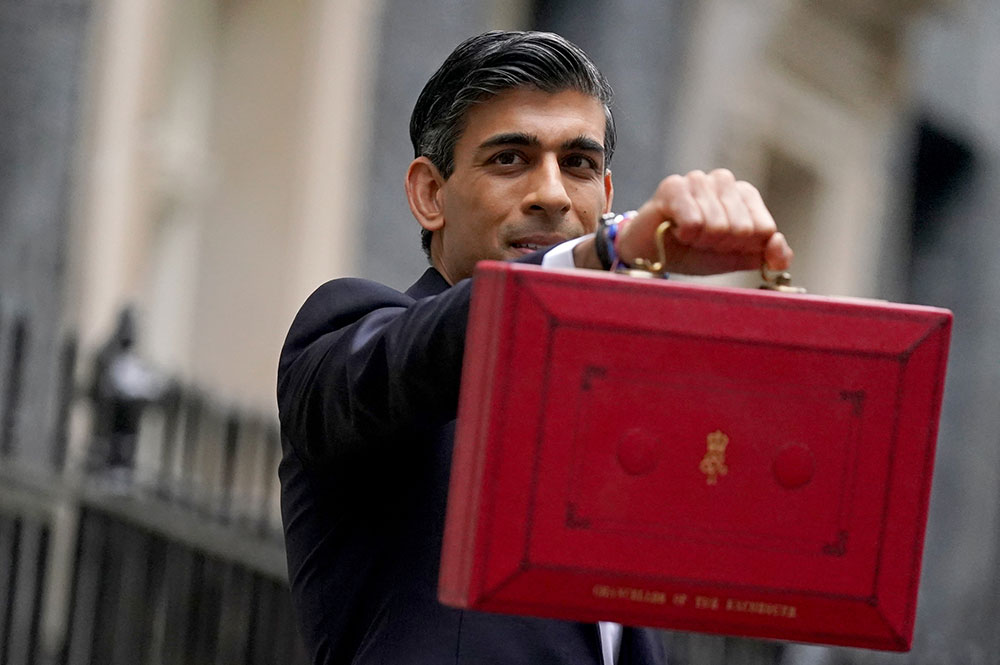Rishi Sunak promised to address the rising cost of living as he reaped the benefits of a stronger-than-expected recovery from the economic hit of Covid-19.
The Chancellor pledged a major increase in public spending, tax cuts for businesses, and investment to create a “new economy” based on high skills and wages following the pandemic in his Budget today.
After widespread condemnation of the decision to cut £20 a week from Universal Credit, Mr Sunak set out plans to reform the benefit to enable claimants to earn more without losing as much of it – a measure he claimed amounts to a £2 billion tax cut for the lowest paid.
[tptn_list limit=3 daily=1 hour_range=1]
But Labour hit out at the package of measures announced by the Chancellor, which will cut the price of a bottle of Champagne and slash taxes for banks.
Here are the key points at a glance.
Economy
- Growth this year is revised up from 4 per cent to 6.5 per cent, according to the Office for Budget Responsibility (OBR).
- The OBR has scaled down its assumption of the scarring effect of Covid-19 on the economy from 3% to 2%
Jobs and benefits
- The OBR has downgraded its unemployment forecast due to the coronavirus pandemic from 12% down to 5.2%, the Chancellor told MPs.
- The minimum wage will increase to to £9.50 an hour next year, up from the current £8.91.
- The Universal Credit taper rate will be cut by 8% from no later than December 1, bringing it down from 63% to 55%.
Alcohol
- Alcohol duty is being “radically” simplified by introducing a system designed around the principle of “the stronger the drink, the higher the rate”.
- A “draught relief” will apply a lower rate of duty on draught beer and cider, cutting the tax by 5% on drinks served from draught containers over 40 litres and bringing the price of a pint down by 3p.
Transport
- A planned rise in fuel duty will be cancelled because of pump prices being at their highest level in eight years.
- Flights between airports in England, Scotland, Wales and Northern Ireland will be subject to a new lower rate of Air Passenger Duty from April 2023.
Education
- £300 million will go towards “A Start for Life” parenting programmes, with an extra £170 million by 2024/25 going into paying for childcare.
- The Chancellor said core science funding will rise to £5.9 billion a year by 2024-25, a cash increase of 37%.
- Funding for each pupil will be returned to 2010 levels, in an increase worth £1,500 a pupil.
Business
- A new 50% business rates discount will apply in the retail, hospitality, and leisure sectors, with eligible businesses able to claim a discount on their bills of up to a maximum of £110,000.
Health
A £6 billion package of funding will help tackle NHS backlogs and invest in technology – trailed ahead of the Budget statement
